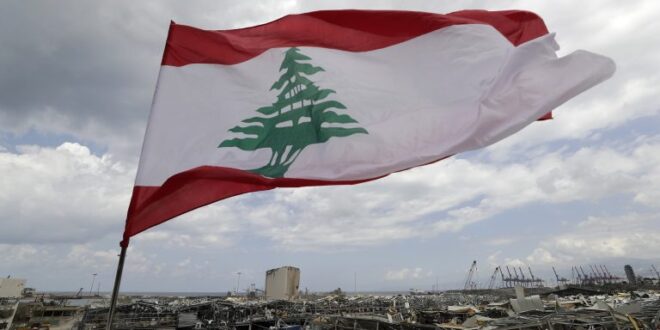Hezbollah’s importation of Iranian fuel supplies demonstrates its willingness and ability to act independently of Lebanon’s official leadership.
Easing Lebanon’s fuel shortages, even if marginally, enhances the position and popularity of both Hezbollah and Iran within Lebanon.
The Biden administration is not likely to impose penalties on the fuel deliveries even though the shipments violate U.S. sanctions on Iran, Hezbollah, and Syria.
The fuel supplies to Lebanon further demonstrate Iran’s ability to skirt and mitigate the effects of comprehensive U.S. sanctions on the Islamic Republic.
In mid-September, despite having none of its members in top leadership posts, Lebanese Hezbollah orchestrated the importation of more than one million gallons of Iranian diesel fuel into Lebanon. The shipment constituted the first of several deliveries of more than 13 million gallons of diesel that an Iranian ship offloaded in the Syrian port of Banias for overland delivery across the Syrian border into Lebanon. Hezbollah members and many Lebanese, who are suffering severe hardships from an ongoing economic crisis, celebrated the truck convoy as it crossed into Lebanon. Hezbollah said on September 24 that a second Iranian ship had arrived successfully in Baniyas, and its fuel cargo would ultimately come into Lebanon, as well.
Hezbollah’s leaders, who claimed full credit for organizing the fuel shipment from Iran, stressed that the deal was not funded or arranged by any of Lebanon’s established leaders. Hezbollah Secretary-General Hassan Nasrallah stated that the fuel was paid for by unnamed Lebanese businessmen. Even though the deliveries will have limited impact on Lebanon’s overall fuel shortage, the fuel importation helped Hezbollah portray itself as a savior, providing needed resources for the Lebanese people when even the government and its Western backers had failed. The shipment also enabled Hezbollah, whose Iran-backed militia is the most powerful organized armed force in Lebanon, to argue that it is not merely a puppet of Tehran, but rather an indispensable ally for which Iran will take significant diplomatic risks. The fuel was distributed mainly to hospitals and elder care facilities that suffer disproportionately from electricity outages, helping Tehran illustrate that it wants to help the broad Lebanese population and not only Hezbollah’s core Shia Muslim political base. Many Lebanese have long criticized Iran for seeking to exploit Lebanon’s political, religious, and sectarian divisions and for using the country as a base to pressure its archenemy, Israel, despite the economic and human costs to the Lebanese population. In part to assuage Lebanon’s traditional benefactors, the United States and European countries, Lebanon’s recently inaugurated Prime Minister Najib Makati called the importation an infringement on Lebanon’s sovereignty—but his government made no attempt to interfere with the deliveries.
Every facet of the fuel transaction challenged U.S. sanctions policy that prohibits transactions with Hezbollah, which is named by the United States as a Foreign Terrorist Organization (FTO); with the Syrian government; and with virtually all sectors of Iran’s economy, including the oil sector. However, there are no indications that the Biden administration will punish the transaction, in large part because doing so would seem harsh in the context of Lebanon’s severe economic crisis. Reflecting the Administration’s stance, U.S. Ambassador to Lebanon Dorothy Shea told Al Arabiya English: “I don’t think anyone is going to fall on their sword if someone’s able to get fuel into hospitals that need it.”
Even if the Biden administration wanted to penalize the shipments, there are few new effective avenues to do so, given the fact that the transaction’s major actors are already sanctioned—including the Hezbollah-linked company, Amana, that distributed the fuel inside Lebanon. On the other hand, the Lebanese businessmen who paid for the fuel, and any Lebanese banks that handled the payment to Iran’s Central Bank, could be held liable by the United States. Instead, the Biden administration has said it will focus on a longer-term alternative arrangement to supply Lebanon with natural gas from Egypt. However, the U.S. plan would require use of a natural gas pipeline through Syria, which is under strict U.S. sanctions. Additional hurdles to the U.S. plan include the disrepair of the pipeline and project funding issues. But, according to Ambassador Shea, “There is a [U.S.] will to make this [alternative] happen.” This also highlights the issue again of the delivery of humanitarian assistance in contexts where sanctioned terrorist groups operate. Although the US and other permanent members of the UN Security Council have proved hesitant to introduce the notion of humanitarian exceptions into counterterrorism sanctions and legal frameworks, the urgent humanitarian crises in Afghanistan, Syria and Lebanon, among others, give greater impetus to the need to find a more sustainable and consistent solution that allows for both robust sanctions and principled humanitarian action.
For Iran, its fuel shipment to Lebanon represents another advance in Tehran’s efforts to break the stranglehold of U.S. sanctions on its economy. Over the past year, Iran has found countries willing and able to risk U.S. penalties by buying Iranian energy exports. Foremost among these buyers is China, which is buying almost as much oil from Iran as it did in 2011, before Iran oil sanctions were enacted. Venezuela and Syria have also taken numerous deliveries of Iranian oil and gas, and in the case of Venezuela, Iran has received some hard currency in the form of gold. It is unclear what are the exact financial arrangements for the Iranian fuel supplies to Lebanon—in particular whether Iran will be receiving desperately needed U.S dollars, a widely used currency in Lebanon. Whether or not the fuel shipments to Hezbollah in Lebanon provide Tehran with a financial windfall, the political and strategic benefits of the deliveries are, alone, more than sufficient to proceed despite the risks of any U.S. financial or other responses.
 Eurasia Press & News
Eurasia Press & News




